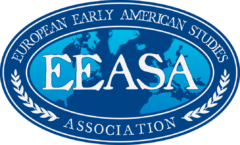“New Kids on the Block”: Novel Perspectives in Emerging Global History Research
Despite its deep roots in previous historiographical movements and its success in the academic arena for three decades, Global History is still riding the wave of its reputation as a new and radical approach to history research. This status brings both advantages and disadvantages to the field. Its perceived novelty has garnered attention and has helped connect global historians with many researchers who did not previously consider their work global. On the other hand, in its constant contemplation of its own newness (and thus unfinishedness), Global History has been accused of being an empty paradigm that makes no unique statements but merely reorganises established knowledge. There is also the issue of Global History’s success in the worldwide academe often being at the expense of more ‘traditional’ disciplines.
The organisers of the University of Edinburgh Global History Graduate Workshop invite papers that comment on this theme of newness. We want newness in this context to be understood broadly, as a theme for both methodologies and research topics. To us, this means exploring two aspects: 1) How Global History relates to other sub-disciplines of history scholarship, whether new or old; 2) how Global History makes newness its subject in the form of the new connections, new modes of communication, new sensory experiences, etc. that globalisation brings about. We are particularly interested in experiencing the new ourselves together with our workshop participants, by platforming the work of emerging scholars who are pushing the boundaries of what it means to do Global History in the third decade of the twenty-first century and who work in areas that have, hitherto, been less well studied by global historians. In this way, we recognise that there is an irony and solipsism to our vision of ‘newness’ – very often, what is new to the scholarly establishment is well-worn knowledge to those traditionally excluded from it. Thus, we also encourage research that breaks apart these presumptions of new and old and questions the power structures inherent to any experience of supposed novelty.
Potential contributions could address some of the following questions:
- How does Global History interact with other historical sub-disciplines like environmental history, gender history, queer history, history of the senses, history of emotions, history of art and material culture, history of music, etc.? Are there aspects of these fields that have not previously been understood as global? Can Global History contribute to these fields in ways that have not yet been explored?
- Which historical time periods still hold new knowledge for the global historian? The nineteenth and twentieth centuries have so far been the main focus of Global History – how can the discipline be enriched and transformed through studies concerning the period pre 1800?
- Which histories remain to be told by centring previously neglected (and thus, to the field, ‘new’) areas? Much of Global History remains Eurocentric – how can our understanding of a globalised human history be changed by a shift of perspective to other centres and nodes of the networks that span our world?
- What knowledge is Global History missing through its current academic structure? While departments of Global History have begun to be established around the world, academic authority remains quite firmly with the so-called ‘West’ or ‘Global North.’ How does this bias distort our understanding of history and of what is new or old in its study?
We aim to create a relaxed and constructive atmosphere in our workshop and encourage the presentation of projects in progress or planning over finished ones. The comfort and well-being of presenters is a priority to us. We hope that participants will not merely bring knowledge to the University of Edinburgh for consumption but will rather gain new impulses from the academic community here and make connections that will enrich their work in the long term. Applicants should be PhD students or early career scholars up to 3 years into their post-doctoral career. Presentations should be 20–25min long and in English. Sessions will take place between September and December 2022, specific dates will be fixed in communication with the selected participants. The workshop will take a hybrid format and remote presenters are highly welcome. We recognise that some participants may prefer to attend in person; we will support presenters who wish to travel to Edinburgh as much as we can, but we must note that our budget is very limited. For international presenters, remote participation is thus recommended. Nonetheless, scholars from outside the UK, US, or Europe are particularly encouraged to apply; so are scholars primarily working outside the boundaries of History, Classics, and Archaeology departments and scholars of the mediaeval or early modern eras.
To apply, please send a short CV and a paper proposal of max. 400 words to ecghworkshop@gmail.com by 31 July 2022.
If you have any further questions, feel free to contact us under this email address or on our Twitter @ECGHGradWrkshp.
Sam Cheney, PhD student in History, University of Edinburgh
Florian Wieser, PhD student in History, University of Edinburgh
